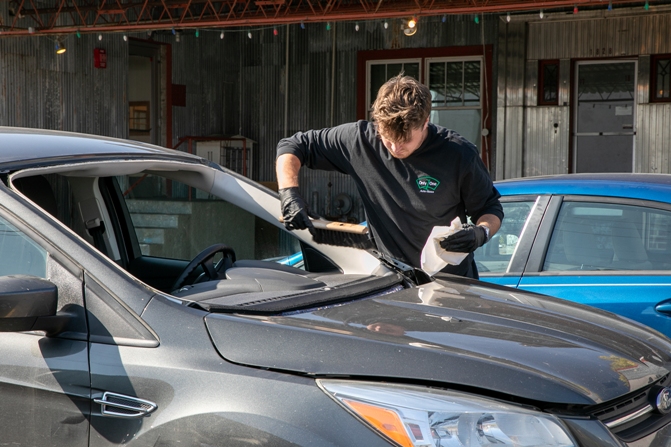Mobile Mechanics: Are They Really Worth The Price
Learning basic auto repair can help you in so many ways throughout your life. Besides saving money from taking it into a shop, you can teach others how to do the same. Read this article for ways to fix things that commonly break in different makes and models of cars.
If you hear a squealing sound when you step on your brakes, it is likely that you need new brake pads or rotors. Do not wait to have a mechanic check your brakes. There will be more damage to pay for and it is also dangerous to drive your car if your brakes are not functioning properly.
Pay attention to the gauges and trouble lights on your cars dash. Learn to recognize the warning signs of a car that is overheating, low on oil or not charging the battery. Knowing which of these indicators need immediate attention can prevent damage to your car and save you cash in the long run.
Learn to change your taillights and headlights. While it's easier in some vehicles than others, it's a whole lot cheaper to do it yourself. Ask an experienced friend to give you some pointers.
There are no standard warranties on repairs. Make sure you are aware of what your warranty covers and that you have it in writing. Warranties may have limitations such as deductibles, mileage, time, businesses authorized to do the warranty work or special steps needed to get reimbursement. Know your warranty rights.
Make sure that you clean your car in the winter as well. Winter can be the most damage causing time of the year for your car. Sand, salt, and other debris are going to be working hard towards making your vehicle start to rust. Dry the car right after washing, and make sure you do it thoroughly.
Stick with Original Equipment Manufacturer (OEM) components. If your car needs parts, choose OEM parts over generic ones. For optimum performance, you should have the OEM parts that are up to the manufacturer's standards. While generic parts are cheaper, they're generally a lower quality than the original ones. This means that you may pay more later for replacements.
Be responsible when performing DIY auto repairs. Just about every item you might replace or repair on a vehicle is environmentally unfriendly. Take care to dispose of liquids such as motor oil and coolant properly. Take used parts to your local junk yard or recycling center. Don't toss plastic bottles about the landscape. If you are unsure of where you can dispose of these items, check with your local waste disposal agency or an automotive supply store.
Prior to having a car repaired, take pictures of all parts of it. Some shops might strip your car to justify billing you for more repairs. Therefore, documenting your vehicle can help you identify stolen items in case this were to happen to you.
Become educated on car-part classifications. There are three conditions: salvage, new, and rebuilt and re-manufactured. New parts are brand new and made to the manufacturer's specification. Rebuilt, reconditioned, and re-manufactured are parts which are restored and in good working condition. Salvaged parts are used parts that have not been repaired.
If a part on your car has to be replaced, get an OEM (Original Equipment Manufacturer) part. If you want your car to run at the highest possible level, it is important not to just put any old generic part in your vehicle. While OEM parts cost more, they are worth it in the end.
Always read your owner's manual before you begin to repair your vehicle. There may be information in your manual that you need to know in order to keep from making a huge mistake. To be sure that you do not waste time and money be sure to look through your manual before you even start.
Remember that where you live can have an impact on when you need to take your vehicle in for service. For example, if you only travel a short distance to work, your exhaust system may have issues as a result. If you live somewhere very hot, in contrast, you may need to look closely at your engine oil. A "one size fits all" service schedule doesn't work for everyone.
Find out about labor rates before you let a mechanic work on your car. You should have your mechanic diagnose the issues and assess how much work will be needed. Make sure you understand how the mechanic will bill you and have a manager give you an estimate of how much labor time is needed instead of trusting a technician who is not responsible for giving quotes.
Rather than running to the mechanic each time you hear a funny noise or your breaks start to slip, you can depend on yourself. The tips in this article should get you started with basic auto repair. Remember them the next time you're having issues with your car for any reason.

